With new technologies revolutionizing data collection, wildlife researchers are becoming increasingly able to collect data at much higher volumes than ever before. Now we are facing the challenges of putting this information to use, bringing the science of big data into the conservation arena. With the help of machine learning tools, this area holds immense potential for conservation practices. The applications range from online trafficking alerts to species-specific early warning systems to efficient movement and biodiversity monitoring and beyond.
However, the process of building effective machine learning tools depends upon large amounts of standardized training data, and conservationists currently lack an established system for standardization. How to best develop such a system and incentivize data sharing are questions at the forefront of this work. There are currently multiple AI-based conservation initiatives, including Wildlife Insights and WildBook, that are pioneering applications on this front.
This group is the perfect place to ask all your AI-related questions, no matter your skill level or previous familiarity! You'll find resources, meet other members with similar questions and experts who can answer them, and engage in exciting collaborative opportunities together. The AI for Conservation group provides a dedicated space to:
- Bridge disciplines: Create a space where ecologists, conservationists and environmental scientists can connect with computer scientists, artificial intelligence researchers and practitioners to address shared challenges.
- Advance knowledge: Share and discuss research, case studies and best practices at the intersection of artificial intelligence and conservation.
- Education: Provide educational resources that help ecologists understand AI methods and their use cases and inspire AI experts to learn about ecological applications.
- Facilitate collaboration: Offer resources and networking opportunities that enable AI researchers and conservation practitioners to co-develop solutions with real-world conservation impact.
Just getting started with AI in conservation? Check out our introduction tutorial, How Do I Train My First Machine Learning Model? with Daniel Situnayake, and our Virtual Meetup on Big Data. If you're coming from the more technical side of AI/ML, Sara Beery runs an AI for Conservation slack channel that might be of interest. Message her for an invite.
Header Image: Dr Claire Burke / @CBurkeSci

Explore the Basics: AI
Understanding the possibilities for incorporating new technology into your work can feel overwhelming. With so many tools available, so many resources to keep up with, and so many innovative projects happening around the world and in our community, it's easy to lose sight of how and why these new technologies matter, and how they can be practically applied to your projects.
Machine learning has huge potential in conservation tech, and its applications are growing every day! But the tradeoff of that potential is a big learning curve - or so it seems to those starting out with this powerful tool!
To help you explore the potential of AI (and prepare for some of our upcoming AI-themed events!), we've compiled simple, key resources, conversations, and videos to highlight the possibilities:
Three Resources for Beginners:
- Everything I know about Machine Learning and Camera Traps, Dan Morris | Resource library, camera traps, machine learning
- Using Computer Vision to Protect Endangered Species, Kasim Rafiq | Machine learning, data analysis, big cats
- Resource: WildID | WildID
Three Forum Threads for Beginners:
- I made an open-source tool to help you sort camera trap images | Petar Gyurov, Camera Traps
- Batch / Automated Cloud Processing | Chris Nicolas, Acoustic Monitoring
- Looking for help with camera trapping for Jaguars: Software for species ID and database building | Carmina Gutierrez, AI for Conservation
Three Tutorials for Beginners:
- How do I get started using machine learning for my camera traps? | Sara Beery, Tech Tutors
- How do I train my first machine learning model? | Daniel Situnayake, Tech Tutors
- Big Data in Conservation | Dave Thau, Dan Morris, Sarah Davidson, Virtual Meetups
Want to know more about AI, or have your specific machine learning questions answered by experts in the WILDLABS community? Make sure you join the conversation in our AI for Conservation group!
Group curators
- @annavallery
- | she/her
Seabird biologist experienced in research and applied conservation. Dedicated to conducting and using innovative research to inform conservation decisions.


- 0 Resources
- 3 Discussions
- 7 Groups
- @ViktorDo
- | he/him
PhD student at University of Exeter & University of Queensland. Interested in researching AI and its responsible application to Ecology, Environmental Monitoring and Nature Conservation.

- 0 Resources
- 0 Discussions
- 5 Groups



- 0 Resources
- 2 Discussions
- 8 Groups
No showcases have been added to this group yet.
- @cpagniel
- | Dr/she/her/elle
Dr. Camille Pagniello leads the Marine Innovation Lab for Leading-edge Oceanography (MILLO) in the Department of Ocean and Resources Engineering at the School of Ocean and Earth Science and Technology (SOEST), University of Hawaiʻi at Mānoa.
- 2 Resources
- 0 Discussions
- 13 Groups
My research focuses on using Next-Generation Sequencing (NGS) to study endangered species, including carnivores, chiropterans (bats), and lizards, as well as their microbiomes.


- 1 Resources
- 5 Discussions
- 20 Groups
- @Adrien_Pajot
- | He/His
WILDLABS & Fauna & Flora
Hi! I am Adrien, a dedicated French ornithologist and engineer committed to biodiversity conservation. I joined the WILDLABS team as a project manager in October 2023!





- 34 Resources
- 142 Discussions
- 3 Groups
- @anamkhan0801
- | he/him
- 0 Resources
- 0 Discussions
- 9 Groups
- 0 Resources
- 0 Discussions
- 4 Groups
- @shishi426
- | she/her
- 0 Resources
- 0 Discussions
- 1 Groups
- 0 Resources
- 0 Discussions
- 8 Groups
- 0 Resources
- 1 Discussions
- 2 Groups
Worked as a mechanical engineer for a defence co, then software engineer, then for a research lab specialising in underwater robotics.
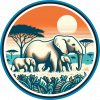
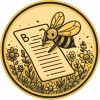

- 1 Resources
- 144 Discussions
- 16 Groups
- @lqmeyers
- | he/him
Graduate Student Researcher interested in computer vision, agro-ecology, and sustainability.
- 0 Resources
- 1 Discussions
- 5 Groups
Ocean Science Analytics
Marine mammal ecologist and online technical trainer



- 1 Resources
- 41 Discussions
- 11 Groups
Universidade Federal de Santa Catarina (UFSC)
Assistant professor at the Federal University of Santa Catarina (Brazil). Main research interests: autonomous AI-based systems.

- 0 Resources
- 1 Discussions
- 2 Groups
Come join us at AIMS, and work on deep learning for bioacoustics research!
14 June 2024
The AI for Climate and Nature Grand Challenge initiative from the Bezos Earth Fund has opened a call for proposals for "exploring new ideas for multiplying the impact of climate and nature efforts using modern AI"
12 June 2024
The San Diego Zoo Wildlife Alliance's Burrowing Owl Recovery Program and Conservation Technology Lab seek a postdoctoral research associate to develop bioacoustic tools for monitoring the western burrowing owl...
11 June 2024
Come and do the first research into responsible AI for biodiversity monitoring, developing ways to ensure these AIs are safe, unbiased and accountable.
11 June 2024
€4,000 travel grants are available for researchers interested in insect monitoring using automated cameras and computer vision
6 June 2024
WildLabs will soon launch a 'Funding and Finance' group. What would be your wish list for such a group? Would you be interested in co-managing or otherwise helping out?
5 June 2024
Now accepting applications for two $15,000 grants to help protect wildlife through cutting-edge, technology-driven efforts
3 June 2024
These authors "develop an approach based on stochastic simulations of biodiversity and a deep learning model to infer richness at global or regional scales through time while incorporating spatial, temporal and...
20 May 2024
Check out this paper that reviews the current state of AI in conservation.
9 May 2024
In 1987, sustainability was defined by the United Nations Brundtland Commission as “meeting the needs of the present without compromising the ability of future generations to meet their own needs.”In 1987,...
7 May 2024
€2,000 travel grants are available for researchers interested in insect monitoring using automated cameras and computer vision
3 May 2024
Save the Elephants is seeking a Principal Investigator for our Elephant Collective Behaviour Project. This role will spearhead research initiatives using cutting-edge video analysis tools to study elephant group...
1 May 2024
September 2025
event
event
event
event
October 2025
event
event
event
December 2025
event
March 2026
event
April 2025
event
March 2025
event
September 2024
event
83 Products
Recently updated products
17 Products
Recently updated products
| Description | Activity | Replies | Groups | Updated |
|---|---|---|---|---|
| Hello everyone,I’ve been running a set of trail cameras for several months and now have thousands of images showing consistent activity... |
|
Camera Traps, AI for Conservation, Animal Movement | 13 minutes 41 seconds ago | |
| Hello WildLabs community,Here's an update on our progress with the AI-based marine mammal sound detection platform.What We've AccomplishedWe've completed our first milestone:... |
|
Acoustics, AI for Conservation, Marine Conservation | 58 minutes 38 seconds ago | |
| hi chad, its great to hear from you_its really a great idea and impactful journey in our community having experience in community-led conservation initiatives, working... |
|
Acoustics, AI for Conservation, Animal Movement, Camera Traps, Citizen Science, Climate Change, Community Base, Connectivity, Drones, eDNA & Genomics, Emerging Tech, Funding and Finance, Geospatial, Human-Wildlife Coexistence, Software Development, Wildlife Crime | 1 day 5 hours ago | |
| Hi everyone :)I’ll be in Kinshasa, DRC from 22 to 27 September as part of the AFRISTART program (Qawafel/RedStart Tunisie), which supports... |
|
AI for Conservation, Community Base, East Africa Community, Edge Computing | 1 day 7 hours ago | |
| We sell a product that includes the model, but we don't have a freely downloadable model for that purpose. You could try pytorch wildlife or speciesnet for a version to compare... |
|
AI for Conservation, Camera Traps, Edge Computing | 6 days 10 hours ago | |
| in the last 3 months we hosted allander hobbs, an under graduated student from the university of edinbrugh, UK .during his interactive... |
|
AI for Conservation, Animal Movement, Autonomous Camera Traps for Insects, Citizen Science | 6 days 1 hour ago | |
| Thanks for the informative videos ... wondered if anyone had recommendations for best IR PoE camera for monitoring wildlife at nighttime? my setup is to stream to a frigate server... |
+15
|
AI for Conservation, Autonomous Camera Traps for Insects, Camera Traps, Edge Computing | 1 week ago | |
| Hi Youssef,Yes I've been following along and am looking forward to this group!Feel free to share whatever! |
+16
|
AI for Conservation, Camera Traps, Edge Computing | 1 week 1 day ago | |
| Hey Alejandro, thanks for trying it! :))The feature you are asking about is called in technical language - animal re-identification. Unfortunately, we currently don't have this... |
|
AI for Conservation, Camera Traps, Data Management & Mobilisation, Software Development | 1 week 4 days ago | |
| Very inspiring! I completely agree that AI should help free conservationists from repetitive tasks so they can focus on strategy and fieldwork. In our IDEPROCONA project in... |
|
AI for Conservation | 1 week 6 days ago | |
| I create ocean exploration and marine life content on YouTube, whether it be recording nautilus on BRUVs, swimming with endangered bowmouth... |
|
Acoustics, AI for Conservation, Animal Movement, Camera Traps, Citizen Science, Drones, Emerging Tech, Marine Conservation, Sensors, Sustainable Fishing Challenges, Wildlife Crime | 2 months ago | |
| I think it is time for exploring many AI s application around our careers and projects. With waste management too! this is also very interesting |
|
AI for Conservation | 2 weeks ago |
How drones, AI & Open Source Software are being used to combat Alien Invasive Plants in South Africa
2 June 2025 10:08am
17 June 2025 1:26am
Aloha, this is a great project. Thanks for sharing. I have been looking for ideas to integrate machine learning with some of the conservation work we are engaed in here on Kauai. Thank you
17 June 2025 11:00am
Thank you for your comment Chris! Using these tools has made a huge difference in the way we can monitor and manage Invasive Alien Vegetation. I hope you are able to integrate similar systems with your projects there. If you need any help, feel free to reach out!
Documentary on Conservation
5 May 2025 10:12am
20 May 2025 11:16pm
Hi Nick,
At Wildlife.ai, from the other side of the world, we would be happy to chat with you. PM if interested
Victor
2 June 2025 10:19pm
Hi Nick!
At Birds Canada, our NatureCounts open data platform connects bird and biodiversity data with people who need it for conservation and research. In particular, our mobile app makes data collection by citizen scence and research projects more efficient, accurate, and accessible. We are happy to chat, if that aligns with your project!
Kyle
16 June 2025 8:53am
Hi Nick,
Thank you for reaching out and for the incredible work you’re doing to spotlight conservation through film. We’d be very interested in learning more about your documentary project.
At Savannah Tracking-Home - Savannah Tracking, we design and manufacture innovative wildlife tracking technologies — from lightweight GPS tags/collars for birds and medium-sized mammals, to robust satellite-enabled collars for elephants (Asian & African). Our tools are used worldwide to support wildlife conservation, research, and conflict mitigation by providing real-time movement data.
We’d be happy to connect and explore how our work might fit into the story you're telling around technology's role in conservation. Feel free to reach out to us or let us know the best way to continue the conversation.
Looking forward to hearing from you
Smart Drone to Tag Whales Project
8 June 2025 12:19pm
14 June 2025 12:19pm
I would love to hear updates on this if you have a mailing list or list of intersted parties!
Drone Imagery and Deep Learning enabling northern gannet counts
12 June 2025 9:52pm
Oportunidades laborales en investigación en la Amazonía | UTEC - ASRI
12 June 2025 4:56pm
How AI can protect mangroves
12 June 2025 4:16pm
Non-Invasive Turtle Nest Monitoring Using RTI Technology
29 May 2025 1:12pm
29 May 2025 1:18pm
6 June 2025 9:40am
We are pleased to welcome a new team member, Dr Hafiz Fazalul Rahiman from Universiti Malaysia Perlis (Unimap) to the team!
https://scholar.google.com.my/citations?user=i2f7Dz0AAAAJ&hl=en
@hafizfr .
We'll be posting our lab work soon.
9 June 2025 6:51pm
Hello, could you please elaborate on what the purpose of this project is? Thanks a lot :)
Lukas
Free webinar: The Road Towards Predicting Sturgeon Migration
6 June 2025 1:14pm
Artificial Intelligence Meets Biodiversity Science: Mining Museum Labels
5 June 2025 4:37pm
Business Intelligence Analyst
3 June 2025 10:07am
Conservation AI Internship (paid) at Conservation International
2 June 2025 4:01pm
Help needed : Overview of Image Analysis and Visualization from Camera Traps
2 June 2025 1:59pm
2 June 2025 2:17pm
This camera trap survey addresses the crucial need for a unified and comprehensive solution to improve data reliability and standardize monitoring techniques in wildlife research. Well done !
2 June 2025 3:18pm
This survey on camera trap use is a valuable effort to improve data quality and consistency in wildlife monitoring. Looking forward to the results and how they will help shape best practices and future research. Great initiative!
AI/ML opportunities
14 April 2025 4:47am
19 April 2025 2:08am
Ritika,
All the best! I hope someone provides a more substantive answer!
I have also graduated with masters in AI and ML recently. Difference being I am at the end of my IT career. I am looking for a career switch to biodiversity, wildlife conservation, sustainability or climate change.
I am trying to do my best to do modern job search. Just warming up to it. LinkedIn, posting relevant posts, being consistent. Virtual networking. In person networking. Being a soon to be fresh graduate, you have access to a huge student networking and academic circle. Keep hitting them consistently and I am sure you will find something.
Share the good news when it happens. :)
Computational Entomology Webinar IV: Platform design for standardized pollinator attraction to camera traps
30 May 2025 1:41pm
Dual-/Multi-Use Technology Strategies
1 April 2025 11:46pm
15 April 2025 6:17pm
That is a great point and the current international trade climate has been making supply chain even more difficult. This also deeply affects US companies given much of the US goods manufacturing and assembly happening in China. Over the last few years, I have been seeing US hardware companies (e.g. drone platform and component OEMs) sourcing their goods from India, Turkey, Canada, and more recently in African and South American nations. Because of the last 3-to-5 years of increasingly restrictive and costly international hardware trade, there has been a emergence of specialized component manufacturers internationally. For European companies interested in providing hardware services to the US, I would suggest diversifying the supply chain beyond China. Given the current climate and trends, that added supply chain resilience may be a good idea, regardless of work with the US.
15 April 2025 7:36pm
This is more than the supply chain though. The point was the company itself cannot use any tech for anything from the 5x companies. So in my case my ISP is incompatible. Essentially I see the only companies making that kind of sacrifice are ones that want to devote themselves to defence only.
Of course. That’s US defense as a customer. European defence is fully on the table.
It’s just sad that it’s not restricted to defence. US government wildlife organisations cannot buy European tech unless that European company was pure in their eyes.
15 April 2025 8:37pm
True, the US ecosystem is a challenging space right now, for basically all sectors.
We should not let the US chaos prevent us from engaging with opportunities in other nations' multi-use markets. A company's ability and journey to tap into other markets is very unique to them (product, team, finances, infrastructure, agility), and some simply cannot adapt. There is no one size fits all (or even most) solution when it comes to multi-use strategies. It is important that we are systematic about evaluating the cost to adapt our product-service to a different market, and the value of new opportunities in that new market, without losing track of underlying conservation and social good needs.
Enhancing automated analysis of marine soundscapes using eco-acoustic indices and machine learning
31 May 2022 6:33pm
🦛 MIT Moo Deng AI Challenge Human-Nature Interaction 🦛
22 May 2025 8:25pm
PhD Advice
22 April 2025 1:34am
4 May 2025 4:14pm
Hi @ethanmarburger, I am probably not the best to give advice here given that it took me nearly two decades to actually finish my PhD, but I'd aim for something that you are really interested in so that you can keep up a high momentum. If you love your project you are more likely to cruise through the 'grind' periods. In terms of networking, WILDLABS is definitely a great place to start! You may well find some connections just looking across the threads here, and reaching out to people that are doing work you are interested in. More broadly, and depending on where you are in the world, you might be able to volunteer or even get some work on projects in your area, which can be a good way to get a foot in the door to larger research projects. You could possibly look at helping out on some analysis of spatial/AI datasets etc, or reach out to not-for-profits and conservation charities and see what they need/you might be able to help with - but try and be as specific as possible so they know straight away what you are after. Just a few quick ideas off the top of my head, and more than happy to discuss further. My best for your search!
Cheers,
Rob
19 May 2025 12:29am
Hi Ethan, It's indeed a competitive area. My advice for you (and anybody else seeking a PhD supervisor)...
- Do background research on each individual potential supervisor and always approach them demonstrating your alignment with their research focus.
- Show that you have read and understood one or two of their key (relevant) papers in your initial email to them.
- Have in mind something relevant to you AND to the potential supervisor, to propose as a topic in your initial email to them. But, remain open to their ideas - there's a good chance they have something that would align with your interests and that would (more) smoothly generate a successful PhD than you might have come up with ;-)
- Write clearly and succinctly.
- Demonstrate enthusiasm and highlight any relevant past experience and engagement in the relevant area (briefly).
- Attach a PDF CV.
- Apply for PhD positions in areas where you are qualified.
- Evidence that you have published a good paper, especially as first author, from your Masters thesis would be a bonus.
This is a time-consuming process. But you may end up spending 3+ years working with this supervisor, and vice versa. It's important for all concerned that you (and they) make a good, informed decision.
Good luck in your search!
Alan.
Software QA Topics
9 January 2025 12:00pm
19 May 2025 5:30am
Hi everyone,
What should we share or demo about Software Quality Assurance?
Alex Saunders and I, the two Software QA people at Wildlife Protection Solutions (WPS) are going to do a community call to knowledge share on software testing and test automation in the 3rd or 4th week of January.
We've listed a few QA topics that we could talk about in this 1-2 minute poll here basketball stars and would like your feedback on topic priority.
Thanks for your feedback and we look forward to connecting! We'll also post when we have an exact date and time pinned down.
Sounds like a great initiative—looking forward to it! I’d love to hear more about your real-world test automation setup, especially any tools or frameworks you’ve found effective at WPS. It’d also be helpful to see how QA fits into your dev workflow and any challenges you’ve faced specific to conservation tech. I just filled out the poll and can’t wait to see what topics get chosen. Thanks, Alex and team, for organizing this!
HawkEars: a high-performance bird sound classifier for Canada
13 May 2025 11:00am
Survey on Earth Observation in Wildlife Ecology
8 May 2025 12:42pm
Prospective NSF INTERN
11 February 2025 10:00am
8 May 2025 8:51am
My name is Frank Short and I am a PhD Candidate at Boston University in Biological Anthropology. I am currently doing fieldwork in Indonesia using machine-learning powered passive acoustic monitoring focusing on wild Bornean orangutans (and other primates). I am reaching out because as a student with a National Science Foundation Graduate Research Fellowship, I am eligible to take advantage of the NSF INTERN program which supports students to engage in non-academic internships through covering a stipend and other expenses, with the only caveat being that the internship must be in-person and not remote. I was wondering if any organizations in conservation technology would be interested in a full-time intern that would be coming in with their own funding?
In addition to experience with machine learning and acoustics through training a convolutional neural network for my research, I also have worked with GIS, remote sensing, and animal movement data through other projects. Further, I have experience in community outreach both in and outside of academic settings, as I previously worked for the Essex County Department of Parks and Recreation in New Jersey for 3 years where I created interpretive signs, exhibits, newsletters, brochures, and social media posts. Now while doing my fieldwork in Indonesia, I have led hands-on trainings in passive acoustic monitoring placement and analysis as well as given talks and presentations at local high schools and universities.
I would love to be able to use this opportunity (while the funding still exists, which is uncertain moving forward due to the current political climate in the US) to exercise and develop my skills at a non-academic institution in the conservation technology sphere! If anyone has any suggestions or is part of an organization that would be interested in having me as an intern, please contact me here or via my email: fshort@bu.edu geometry dash. Thank you!
Hi Frank, your work sounds incredibly valuable and well-aligned with current needs in conservation tech. With your strong background in machine learning, acoustics, GIS, and outreach, you’d be an asset to many organizations. I’d recommend looking into groups like Rainforest Connection, Wildlife Acoustics, or the Conservation Tech Directory (by WILDLABS)—they often work on acoustic monitoring and might be open to in-person internships, especially with funding already in place. Best of luck finding the right match—your initiative is impressive!
Weed-AI: Supporting the AI revolution in weed control
7 May 2025 10:58pm
Technology in Wildlife Welfare Workshop (in-person, UK)
6 May 2025 7:46pm
Counting Problems in Conservation
30 April 2025 6:27pm
1 May 2025 11:25am
Thank you!
3 May 2025 2:21pm
I am not part of this study. But it looks like a good future use case for countGD:
5 May 2025 7:12pm
This looks like a great application, thank you! I wonder if they are planning to run this study in future years.
'Boring Fund' Workshop: AI for Biodiveristy Monitoring in the Andes
5 February 2025 5:55pm
8 February 2025 4:29pm
Hey @benweinstein , this is really great. I bet there are better ways to find bofedales (puna fens) currently than what existed back in 2010. I'll share this with the Audubon Americas team.
2 May 2025 2:59pm
Hi everyone, following up here with a summary of our workshop!
The AI for Biodiversity Monitoring workshop brought together twenty-five participants to explore uses of machine learning for ecological monitoring. Sponsored by the WILDLABS ‘Boring Fund’, we were able to support travel and lodging for a four-day workshop at the University of Antioquia in Medelín, Colombia. The goal was to bring together ecologists interested in AI tools and data scientists interested in working on AI applications from Colombia and Ecuador. Participants were selected based on potential impact on their community, their readiness to contribute to the topic, and a broad category of representation, which balanced geographic origin, business versus academic experience, and career progression.
Before the workshop began I developed a website on github that laid out the aims of the workshop and provided a public focal point for uploading information. I made a number of technical videos, covering subjects like VSCODE + CoPilot, both to inform participants, as well as create an atmosphere of early and easy communication. The WhatsApp group, the youtube channel (link) of video introductions, and a steady drumbeat of short tutorial videos were key in establishing expectations for the workshop.
The workshop material was structured around data collection methods, Day 1) Introduction and Project Organization, Day 2) Camera Traps, Day 3) Bioacoustics, and Day 4) Airborne data. Each day I asked participants to install packages using conda, download code from github, and be active in supporting each other solving small technical problems. The large range of technical experience was key in developing peer support. I toyed with the idea of creating a juypterhub or joint cloud working space, but I am glad that I resisted; it is important for participants to see how to solve package conflicts and the many other myriad installation challenges on 25 different laptops.
We banked some early wins to help ease intimidation and create a good flow to technical training. I started with github and version control because it is broadly applicable, incredibly useful, and satisfying to learn. Using examples from my own work, I focused on github as a way both to contribute to machine learning for biology, as well as receive help. Building from these command line tools, we explored vscode + copilot for automated code completion, and had a lively discussion on how to balance utility of these new features with transparency and comprehension.
Days two, three and four flew by, with a general theme of existing foundational models, such as BirdNET for bioacoustics, Megadetector for Camera traps, DeepForest for airborne observation. A short presentation each morning was followed by a worked python example making predictions using new data, annotation using label-studio, and model developing with pytorch-lightning. There is a temptation to develop jupyter notebooks that outline perfect code step by step, but I prefer to let participants work through errors and have a live coding strategy. All materials are in Spanish and updated on the website. I was proud to see the level of joint support among participants, and tried to highlight these contributions to promote autonomy and peer teaching.
Sprinkled amongst the technical sessions, I had each participant create a two slide talk, and I would randomly select from the group to break up sessions and help stir conversation. I took it as a good sign that I was often quietly pressured by participants to select their talk in our next random draw. While we had general technical goals and each day had one or two main lectures, I tried to be nimble, allowing space for suggestions. In response to feedback, we rerouted an afternoon to discuss biodiversity monitoring goals and data sources. Ironically, the biologists in the room later suggested that we needed to get back to code, and the data scientists said it was great. Weaving between technical and domain expertise requires an openness to change.
Boiling down my takeaways from this effort, I think there are three broad lessons for future workshops.
- The group dynamic is everything. Provide multiple avenues for participants to communicate with each other. We benefited from a smaller group of dedicated participants compared to inviting a larger number.
- Keep the objectives, number of packages, and size of sample datasets to a minimum.
- Foster peer learning and community development. Give time for everyone to speak. Step in aggressively as the arbiter of the schedule in order to allow all participants a space to contribute.
I am grateful to everyone who contributed to this effort both before and during the event to make it a success. Particular thanks goes to Dr. Juan Parra for hosting us at the University of Antioquia, UF staff for booking travel, Dr. Ethan White for his support and mentorship, and Emily Jack-Scott for her feedback on developing course materials. Credit for the ideas behind this workshop goes to Dr. Boris Tinoco, Dr. Sara Beery for her efforts at CV4Ecology and Dr. Juan Sebastian Ulloa. My co-instructors Dr. Jose Ruiz and Santiago Guzman were fantastic, and I’d like to thank ARM through the WILDLABS Boring fund for its generous support.
2 May 2025 2:59pm
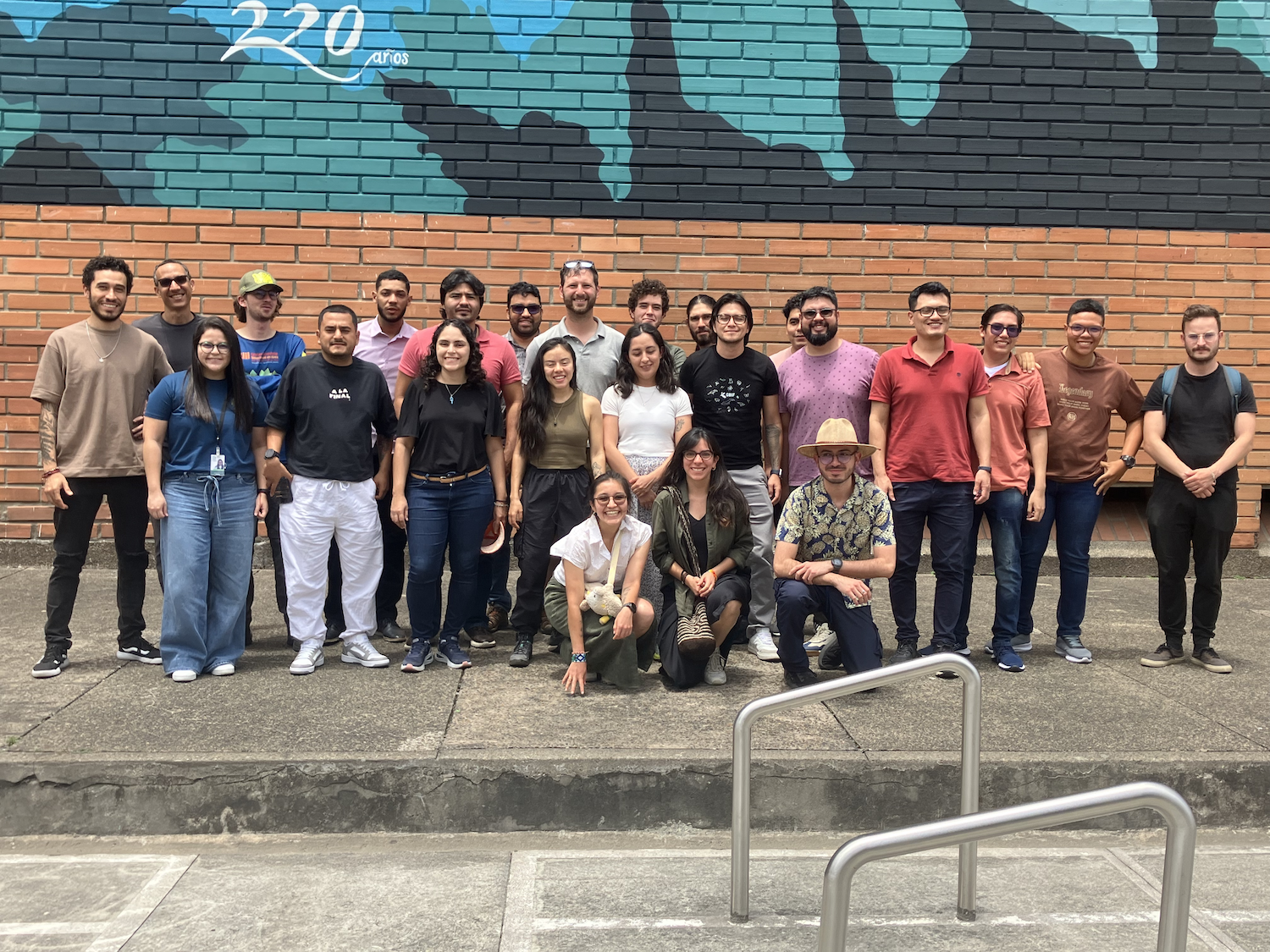
Animal Detect is live
30 April 2025 10:05am
1 May 2025 4:38pm
Super happy to finally have Animal Detect ready for people to use. We are open for any feedback and hope to bring more convenient tools :)
Sustainable financing for open source conservation tech - Open Source Solutions + Funding and Finance Community Meeting
 Pen-Yuan Hsing
and 5 more
Pen-Yuan Hsing
and 5 more
1 May 2025 11:52am
We are releasing SpeciesNet
3 March 2025 4:48pm
28 April 2025 12:30pm
This is great news!
I am using rather high resolution images and have just ordered some 4K (8MP) camera traps.
The standard megadetector run via Addax AI is struggling a bit with detecting relatively small animals (frame wise) although they have quite a number of pixels. This naturally follows from the resizing in megadetector.
I have noticed :
MegaDetector/megadetector/detection/run_tiled_inference.py at 472460d7da7de84027282841b5b775664a4305ed · agentmorris/MegaDetector · GitHub
MegaDetector is an AI model that helps conservation folks spend less time doing boring things with camera trap images. - MegaDetector/megadetector/detection/run_tiled_inference.py at 472460d7da7de84027282841b5b775664a4305ed · agentmorris/MegaDetector
but this seem not readilly available in Addax AI. Is it somehow supported in SpeciesNet?
Cheers,
Lars
30 April 2025 11:29am
This scenario is not supported by SpeciesNet, but if your species are well supported in its training data, maybe we can work out a custom setup. Can you share what species you're seeing/expecting as "small animals"?
30 April 2025 7:00pm
Hi Ștefan!
In my current case, I am trying to detect and count Arctic fox pups. Unfortunately, Arctic fox does not seem to be included in the training data of SpeciesNet but even if it was, pups look quite different from adults.
After a quick correspondance with Dan Morris and Peter van Lunteren on the Addax AI gitHub I was made aware of the image size option of MegeDetector. It seem to help somewhat to run the detection at full resolution (in my case up to 1920*1080). I have the impression that I get more good detections, but also less false detections (even without repeat_detection_elimination) by using higher resolution.
Dan offered to have a look at my specific challenge so I sent him 10K+ images with fox pups.
Connecting the Dots: Integrating Animal Movement Data into Global Conservation Frameworks
 Lacey Hughey
and 3 more
Lacey Hughey
and 3 more
30 April 2025 1:38am

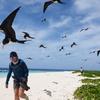

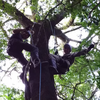




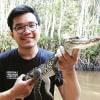















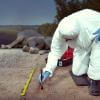






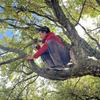








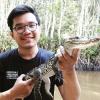














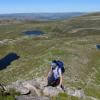







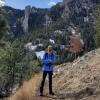
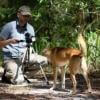









7 June 2025 9:36pm
Hi Ginevra, thank you! Its such a huge advantage to have tech tools available to us in conservation. Not just from an analysis point of view but also from a practical application view😊